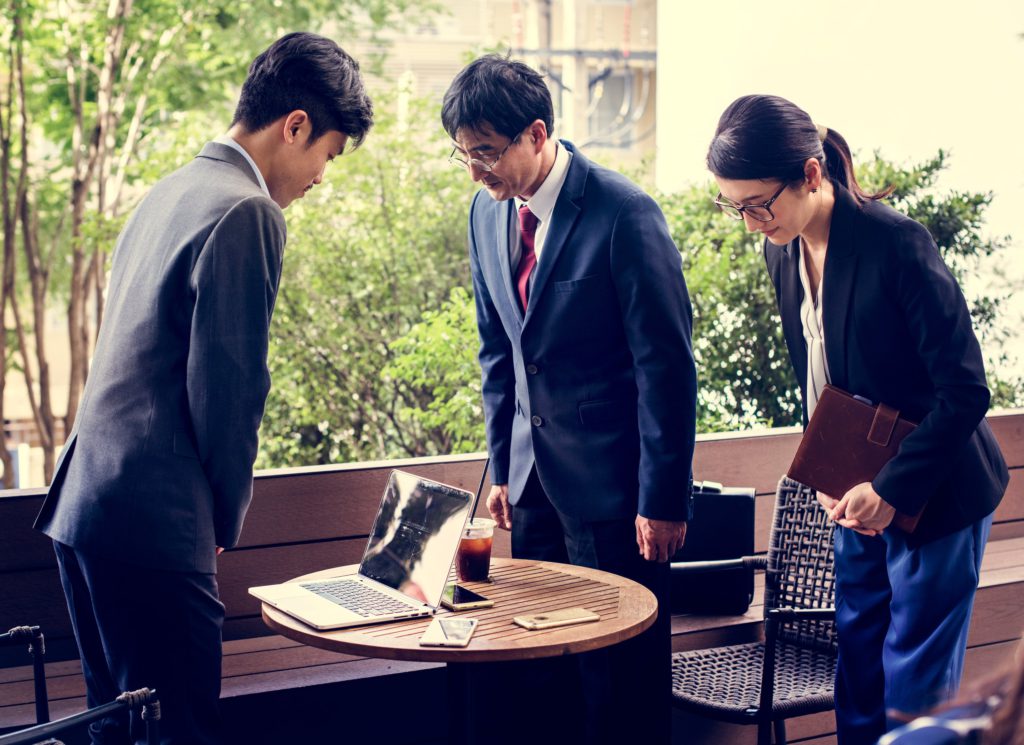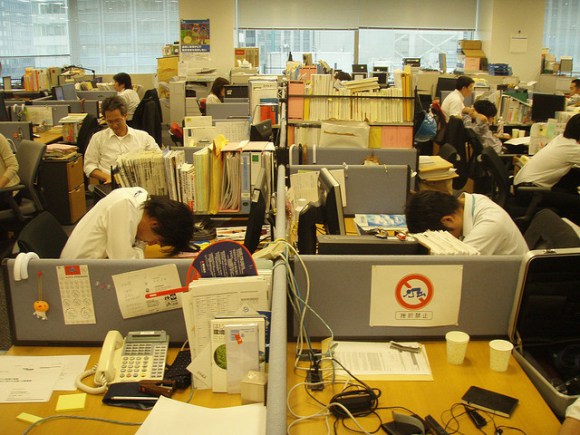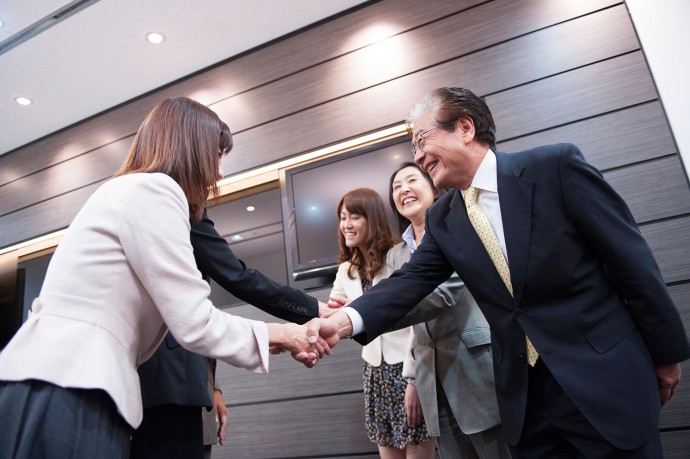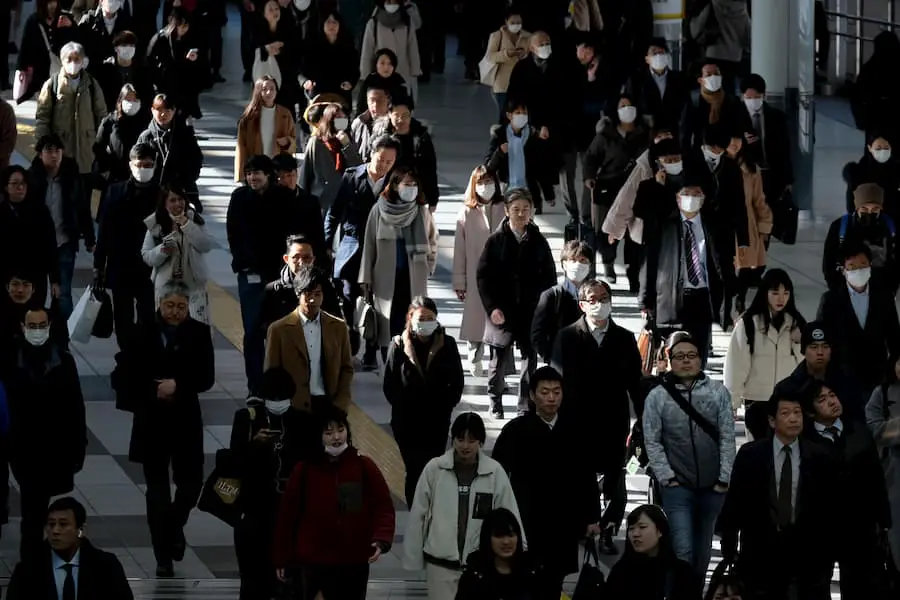Win a Free Trip to Japan!
Experience cherry blossoms and ancient temples
The work culture in Japanese organizations is a unique blend of long-standing traditions and modern innovations. Understanding the deep-seated values that shape the traditional work ethic, such as diligently honoring hierarchies and embodying respect, is crucial. Despite the enduring respect for tradition, employees face significant challenges, including achieving work-life balance and managing long working hours. However, Japanese companies are increasingly adopting innovative approaches to enhance employee well-being and productivity. As they strive to bridge traditional and modern practices, they continue to evolve, maintaining their cultural identity while embracing change.
Understanding the Traditional Work Ethic in Japan
The work culture in Japanese companies is deeply rooted in traditional values and practices that date back centuries. Understanding these elements provides valuable insights into the collective mindset and operational ethos dominant in many Japanese workplaces.
Key aspects of the traditional Japanese work ethic include:
- Loyalty to the Company: Employees often view their workplace as a second family. This strong sense of loyalty results in long-term employment and minimal job-hopping.
- Seniority-Based Hierarchies: Respect for seniority and experience plays a crucial role. Promotions and salary increases are often based on tenure rather than solely on performance.
- Group Harmony (Wa): Emphasis on teamwork and collective decision-making is paramount. The concept of wa ensures that maintaining harmony and avoiding conflict is a priority.
- Perseverance and Diligence: A strong emphasis on hard work and persistence, often encapsulated in the saying “ganbaru,” meaning to endure tough situations with a strong spirit.
Understanding these principles helps contextualize various elements of work culture in Japanese organizations. However, modern shifts are challenging these traditions as more companies adopt innovative approaches to balance efficiency with employee well-being.
The Role of Hierarchies and Respect in the Workplace
In the work culture in Japanese corporations, hierarchies and respect play crucial roles. Seniority-based systems often dictate the organizational structure, where age and experience influence position and decision-making power. Understanding these dynamics is essential for anyone working within or alongside Japanese companies.
Key Elements:
- Senpai-Kohai Relationships: This term refers to the mentor-mentee dynamic. The senpai (senior) offers guidance and support, while the kohai (junior) shows respect and loyalty.
- Addressing Colleagues: Titles are crucial. Referring to someone by their title and family name shows respect. For example, using “Tanaka-san” instead of first names.
- Bowing: A physical manifestation of respect, bowing varies in depth and duration depending on the seniority of the individual you’re engaging with.
Comparison of Hierarchical Structures:
| Aspect | Japanese Culture | Western Culture |
|---|---|---|
| Decision-Making | Top-down, senior-driven | Collaborative, role-based |
| Addressing Colleagues | By title and family name | By first name (in many cases) |
| Mentoring Role | Senpai-Kohai relationship | Formal mentoring programs or informal guidance |
Understanding these nuances in the work culture in Japanese companies fosters smoother communication and more effective collaboration. Thus, recognizing and respecting hierarchical structures can significantly impact business success in Japan.
Work-Life Balance Challenges in Japanese Work Culture
Work culture in Japanese companies often presents significant work-life balance challenges. Traditionally, Japanese employees display unwavering dedication to their employers, frequently prioritizing work over personal affairs. This adherence to long working hours can create numerous challenges:
- Extended Work Hours: The norm of working late into the evening remains prevalent. Many employees feel an unstated obligation to stay until their superiors leave.
- Limited Vacation Use: Japanese workers often hesitate to take their full allotment of vacation days. This reluctance arises from cultural expectations and the fear of being seen as less dedicated.
- Social Obligations: Work often extends beyond office hours with mandatory social gatherings such as nomikai (drinking parties). These activities, while fostering team cohesion, can further encroach on personal time.
| Aspect | Challenge |
|---|---|
| Extended Work Hours | Normalized culture of working late and extra hours |
| Limited Vacation Use | Employees seldom take full vacation due to cultural norms |
| Social Obligations | After-hours gatherings impact personal time significantly |
It’s evident that the traditional work culture in Japanese firms places considerable strain on achieving a balanced lifestyle. However, recent measures aim to address these challenges, encouraging a healthier equilibrium between professional and personal life.
The Impact of Long Working Hours on Employees
Long working hours significantly shape the work culture in Japanese companies. This phenomenon, often linked to the concept of “karoshi,” or death from overwork, has severe implications for employees’ well-being and productivity.
Negative Impacts of Long Working Hours:
- Physical Health: Extended hours can lead to chronic fatigue, sleep disorders, and even cardiovascular problems.
- Mental Health: Prolonged stress from excessive work can cause anxiety, depression, and burnout.
- Family Life: Limited time at home strains relationships, impacting family dynamics and increasing personal stress.
Comparing Work Hours:
| Aspect | Japan | Other Countries |
|---|---|---|
| Average Weekly Hours | 50+ hours | 40 hours |
| Paid Leave Utilization | Rarely used | Often used |
| Overtime Expectations | Very high | Moderate to Low |
Despite these challenges, some Japanese companies are innovating to improve the situation. These innovations aim to balance traditional expectations with modern well-being practices, reflecting a shift towards sustainable work culture in Japanese workplaces. Enhanced employee well-being and productivity often follow a reduction in work hours.
Innovative Approaches to Employee Well-being and Productivity
In recent years, companies have started adopting innovative approaches to enhance employee well-being and productivity, addressing some long-standing issues within the work culture in Japanese firms. These methods aim to create a more balanced and satisfactory work environment.
Key Innovations:
- Flexible Working Hours: Companies are increasingly offering flexible working hours to accommodate employees’ personal lives better.
- Remote Work Options: With advancements in technology, remote work has become more feasible, allowing employees to work from home and reduce commuting stress.
- On-site Health Services: Implementing on-site fitness centers and wellness programs, businesses strive to keep their employees physically and mentally healthy.
- Mindfulness and Meditation Sessions: Integrating mindfulness and meditation into daily routines helps reduce stress levels and boosts productivity.
Below is a comparison table highlighting traditional versus innovative practices:
| Aspect | Traditional Practice | Innovative Approach |
|---|---|---|
| Working Hours | Fixed, long hours | Flexible, varied hours |
| Workplace Location | Office-based | Remote work options |
| Health and Wellness | Minimal focus | On-site health services |
| Mental Health | Often neglected | Mindfulness sessions |
By integrating these practices, the work culture in Japanese companies is evolving, promoting both well-being and efficiency in the workplace. This shift marks a significant move towards a more modern and employee-friendly work environment.
Adapting to Modern Business Practices
As global markets evolve, the work culture in Japanese companies has started to shift towards more modern business practices. Traditionally, Japanese firms prioritized lifetime employment and seniority-based promotions. However, these old practices are encountering new challenges as companies strive to remain competitive.
Modern Adaptations in Japanese Work Culture:
Flexible Working Hours: A significant change is the introduction of flexible working hours, allowing employees to better balance personal and professional commitments.
Remote Work Options: The COVID-19 pandemic accelerated the adoption of remote work, a practice that was previously uncommon in Japan.
Merit-Based Promotions: Instead of solely relying on seniority, companies are increasingly recognizing and rewarding employee performance and achievements.
Diverse Workplaces: Embracing diversity and inclusiveness, these modern workplaces welcome employees from various backgrounds and cultures.
Comparison Table: Traditional vs. Modern Practices
| Aspect | Traditional Practices | Modern Practices |
|---|---|---|
| Promotion | Based on seniority | Based on merit |
| Work Hours | Fixed, long hours | Flexible, balanced |
| Employment | Lifetime employment | Contractual and varied employment terms |
| Work Environment | Homogeneous | Diverse and inclusive |
Adapting to these modern practices can help bridge the gap between traditional and contemporary work culture in Japanese companies. Thus, fostering innovation and boosting productivity in the evolving business landscape.
Bridging Traditional and Modern Work Culture in Japan
Work culture in Japanese workplaces presents a unique blend of longstanding traditions and modern innovations. Successfully merging these elements can create a harmonious and efficient work environment. Key strategies include:
Leveraging Hierarchical Respect: Traditional respect for hierarchies can coexist with more modern, flatter organizational structures. Leaders can maintain respect from subordinates while encouraging open communication and collaboration.
Adapting Technology: Integrating modern tech solutions, such as remote work tools and automation, helps contemporary Japanese companies remain competitive without abandoning their cultural roots in meticulousness and precision.
Promoting Work-Life Balance: Modernizing work culture involves promoting better work-life balance. Implementing flexible work hours and offering mental health support can significantly improve employee well-being.
Blending Office Environments: Designing office spaces that merge traditional aesthetics with modern functionalities can foster a productive yet culturally familiar atmosphere. Think tatami rooms for meditation combined with cutting-edge workstations.
The following table highlights key differences and synergies:
| Traditional Work Culture | Modern Work Culture |
|---|---|
| Hierarchical structure | Flatter organization |
| Rigid work hours | Flexible schedules |
| Face-to-face interactions | Remote work capabilities |
| Long-term employment | Project-based work |
Successfully bridging these elements ensures that work culture in Japanese enterprises can honor their heritage while embracing the future.
Frequently Asked Questions
What are some traditional aspects of Japanese work culture?
Traditional aspects of Japanese work culture include lifetime employment, seniority-based promotion, and a strong emphasis on collectivism and loyalty to the company. Employees are expected to work long hours, often beyond standard business hours, and participate in after-work socializing, known as “nomikai” (drinking parties). These traditions underscore the value placed on group harmony, dedication, and the well-being of the company as a whole.
What challenges do foreigners face when working in Japan?
Foreigners often face several challenges when working in Japan, including language barriers, cultural differences in communication styles, and different workplace expectations. The hierarchical structure can be difficult to navigate for those accustomed to more egalitarian work environments. Additionally, the emphasis on indirect communication and the importance of reading between the lines (“kuuki yomeru”) can be challenging for those not familiar with these cultural nuances.
How is Japan innovating in work culture to adapt to modern times?
Japan is gradually adapting its work culture through various innovations. The government and many companies are promoting work-life balance initiatives such as “Premium Fridays,” where employees can leave work early on the last Friday of the month, and telecommuting options. There is also a push towards reducing overtime, encouraging the use of paid leave, and creating more flexible working hours to better align with global standards and to address the country’s demographic challenges, such as a declining birth rate and an aging population.
Are there any sectors in Japan where work culture is particularly unique?
Yes, certain sectors in Japan exhibit unique work cultures. For instance, the technology and startup sectors often have a more relaxed and flexible approach compared to traditional industries like manufacturing or finance. Companies in these dynamic sectors are more likely to adopt Western work practices, such as open office layouts, casual dress codes, and flexible working hours. On the other hand, traditional sectors may still adhere to conventional norms with a strong focus on hierarchy, formality, and long working hours.







